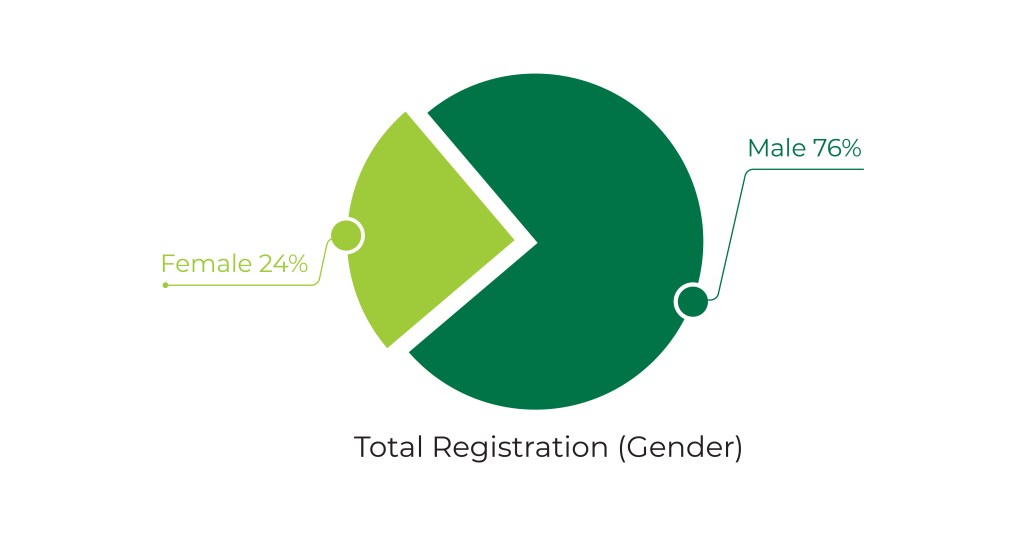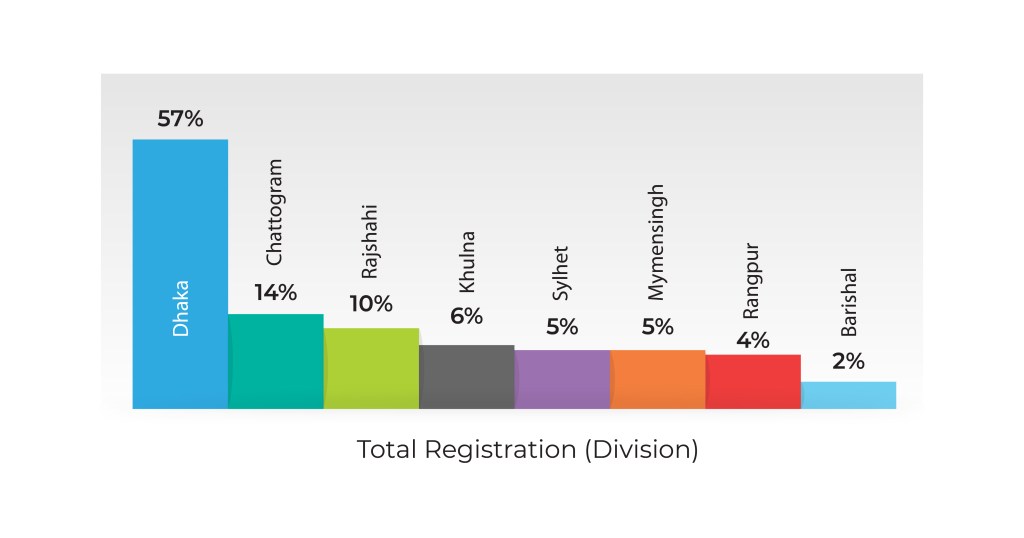The Bangladesh Artificial Intelligence Olympiad (BdAIO) has taken a giant leap forward in 2025, showcasing an extraordinary surge in interest and participation from students across the country. Over 1000 kids have registered for this year’s Olympiad, demonstrating the growth of what started out as a modest competition in 2024 with only 183 registrations into a nationwide movement. The increase is indicative of a larger trend in which artificial intelligence is no longer seen as a remote or abstract idea but rather as an interesting topic that young people in Bangladesh are keen to learn more about.

In 2024, just 50 students progressed to the Olympiad’s national round. Although the first edition set a good basis, it was still in its infancy. After a year has passed, the scenery has drastically changed. In addition to surpassing the thousand registrations, 171 students advanced to the finals and another 235 took part in the AI quiz round in the 2025 edition. In just a year, interest and understanding of AI have skyrocketed, as evidenced by the roughly sixfold rise in engagement.
This is a change in perspective rather than merely an increase in numbers. AI is starting to be recognized by educators, parents, and students as an essential component of the future, not just globally, but also in Bangladesh. Through the Olympiad, kids have had the opportunity to interact with state-of-the-art technologies, hone their critical thinking abilities, and envision themselves as future innovators and problem solvers. The tireless efforts of educators, volunteers, and activists who have pushed to increase AI’s accessibility for children from all backgrounds are responsible for this quick expansion.

A closer examination of this year’s data, however, shows a gender disparity that requires attention. Only 24% of participants were female, whereas 76% of participants were male, underscoring the need for future inclusive measures. The Olympiad organizers are thinking of a multifaceted strategy to bridge this gap, including mentorship programs with female role models in AI and technology, inclusive advertising materials, and focused outreach in girls’ schools. Hands-on sessions, confidence-building workshops, and beginner-friendly courses can help many new female participants feel more motivated and confident.

There is a regional divide in the Olympiad data as well. The bulk of participants were students from Dhaka, Chattogram, and Rajshahi, with lesser numbers from other divisions. A lack of STEM-based education, poor instruction, and fewer extracurricular activities in many areas are frequently the causes of this lopsided distribution. Expanding STEM education in schools, making AI learning resources easily accessible, and setting up regional training camps and workshops are all essential to empowering students in all divisions, particularly in underprivileged areas.
In terms of innovation, Bangladesh is at the dawn of a new age, and this Olympiad is more than just a contest; it is the starting of something new. Despite the lengthy trip ahead, the future appears bright considering inclusive measures and hundreds of talented minds.

lfjz6y
https://shorturl.fm/fEpRb
https://shorturl.fm/T3Q5n
https://shorturl.fm/1mb8H
https://shorturl.fm/dtwqJ
https://shorturl.fm/rnVTO
https://shorturl.fm/CCLsz
https://shorturl.fm/cQNk0
https://shorturl.fm/bee1A
pdxusv
https://shorturl.fm/YGPCK
That’s a great point about accessibility in music creation! It’s awesome to see tools like Sprunki Retake lowering the barrier to entry – no downloads needed, just instant play! Really inspiring for new artists. ✨
https://shorturl.fm/HgzFS
https://shorturl.fm/cslYt
That’s a fascinating point about game fairness! Seeing platforms like jiliko vip login prioritize transparent RTP & RNG is great for players. Makes choosing games much more informed, especially with options like Megaways! 👍
https://shorturl.fm/ZO4NS
Winwinslot777, uma baita surpresa! Adoro slots e a variedade aqui é incrível. Consegui um jackpot que me deixou feliz da vida! Testem a sorte lá: winwinslot777
https://shorturl.fm/naz9J
x1r3au
i9bet015… never heard of it before. Looks like a betting site. Gonna poke around and see what they’ve got to offer. Always looking for new places to try my luck! Have a look here: i9bet015.
https://shorturl.fm/DkZPz
ixys3d
https://shorturl.fm/HCcgf
Logged into 77758betlogin and had no problems. It’s pretty straightforward, so easy to get around. If you are looking to sign in, go to 77758betlogin
https://shorturl.fm/QOrAf
4mnpip
https://shorturl.fm/lc9TP
Yo, Taya3650, listen up! This site’s got it going on. Quick payouts and the games are fire. Definitely my go-to spot! Check it out! taya3650
https://shorturl.fm/efT9b
https://shorturl.fm/18HBO
https://shorturl.fm/n901w
https://shorturl.fm/O545z
Curious about 123win94. Hoping to finding some fun and maybe even winning something! Well, here is hoping! Give it a shot yourself: 123win94
I am loving this 5ubetapp! Very convenient to use on the go. The mobile app is smooth and reliable. Give the 5ubetapp a download!
https://shorturl.fm/NCmjP
https://shorturl.fm/vXsES
Alright cobbers, cashhoardslot just gave me a big score. The interface is clean, too. Cheers m8! cashhoardslot
https://shorturl.fm/Wrg0A
Luvabet4 is pretty cool, I’ve had some fun times on there with their bonuses. Don’t go chasing big losses, but it is good for a go on luvabet4
https://shorturl.fm/OGj85
https://shorturl.fm/Wik39
https://shorturl.fm/Qqs2s
Yo, MCW77bet is the place to be! Really dig the selection of games they got. Site’s smooth, easy to use, and I’ve actually pulled out a few wins. Definitely worth checking out. mcw77bet
Anyone else playing w567? It’s surprisingly good! Been spending way too much time on it lol. Find it here w567
https://shorturl.fm/P82Z3
https://shorturl.fm/hporw
https://shorturl.fm/inWMP
777yono seems promising folks. I just signed up, the layout seems user-friendly, and the options for games are plentiful. Hopefully it’ll go well, cheers 777yono.
https://shorturl.fm/DCWoC
789pvip looks interesting, gotta say. Their VIP program seems enticing. Anyone here a member? Wanna hear your experiences with using 789pvip!
Heiststakesvn caught my eye, seems a cool game. If you want to try something new, click below: heiststakesvn.